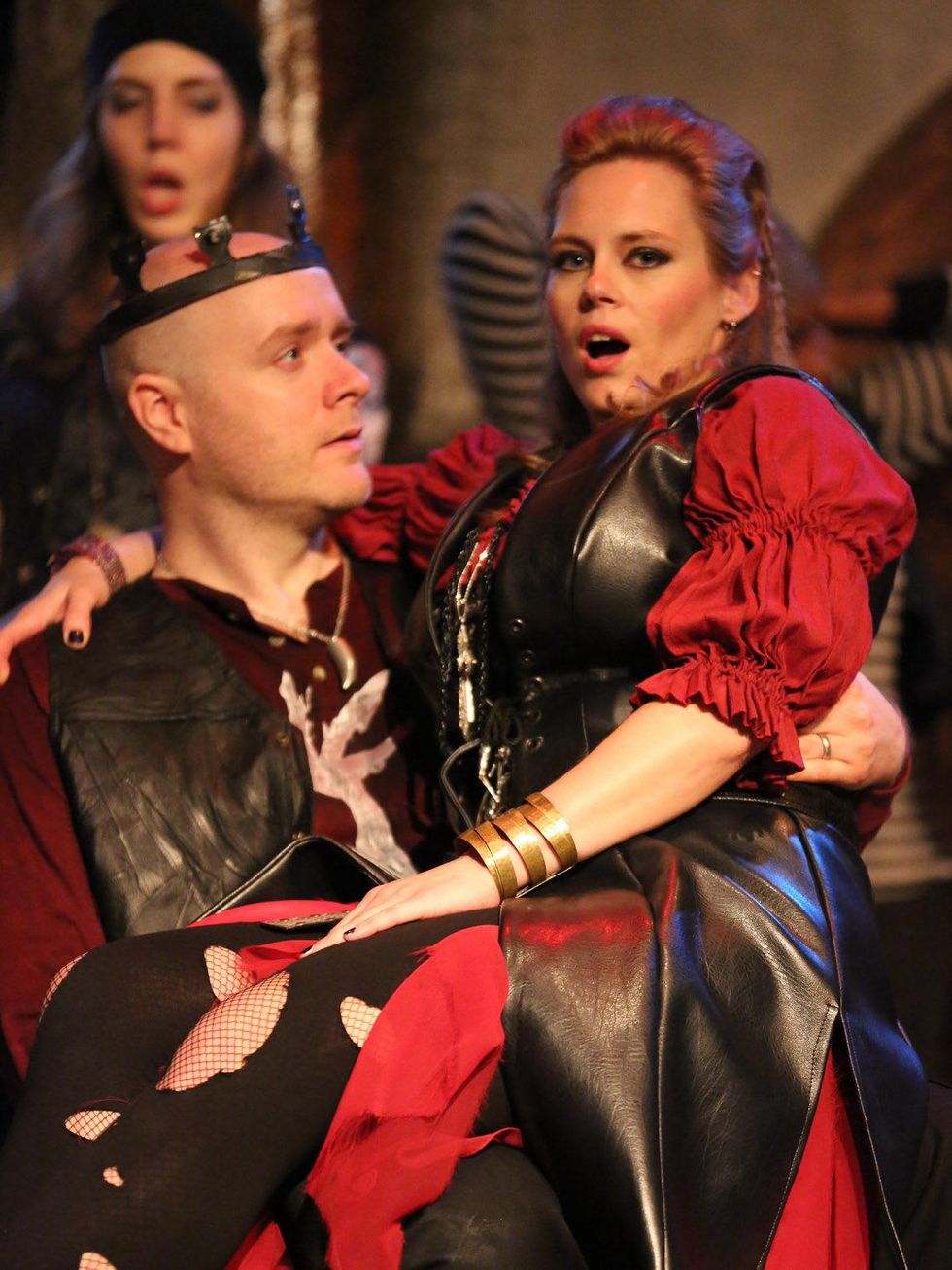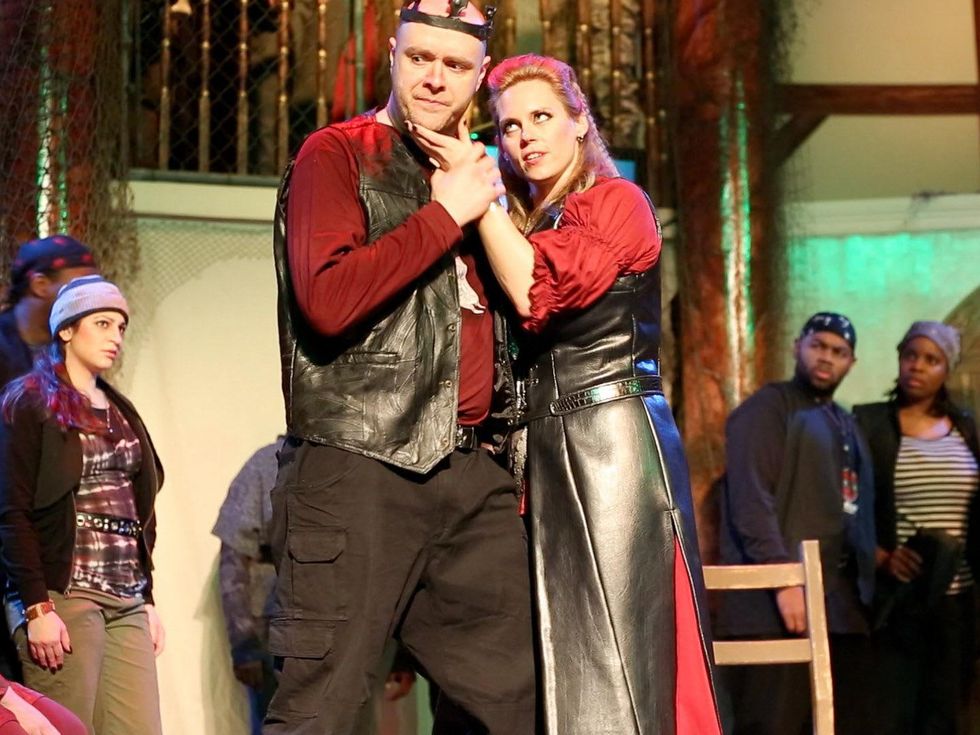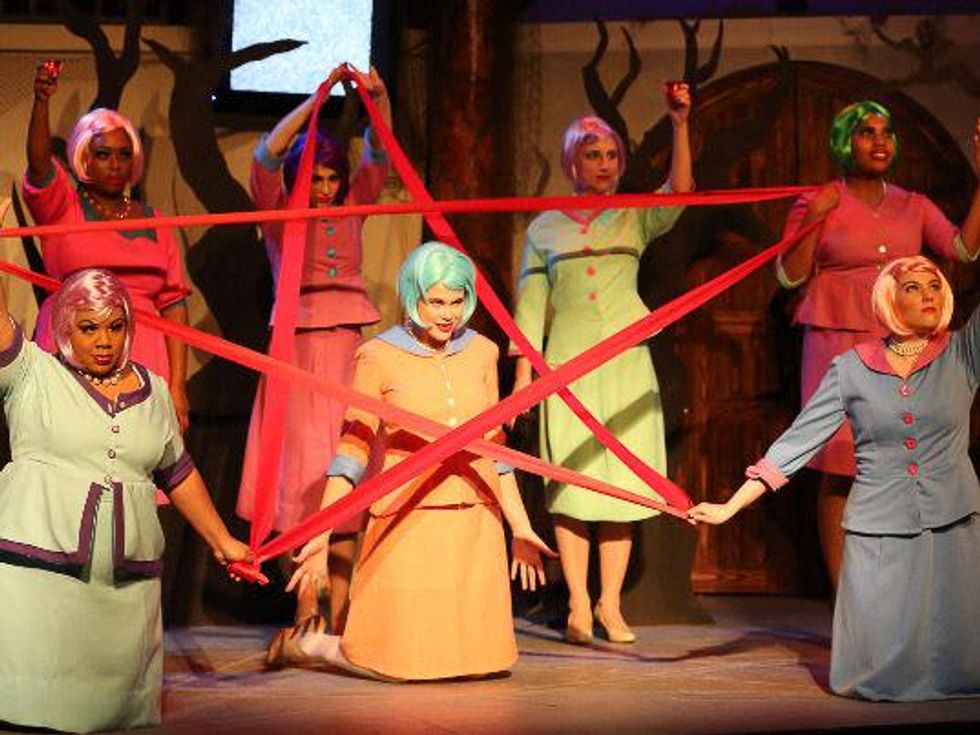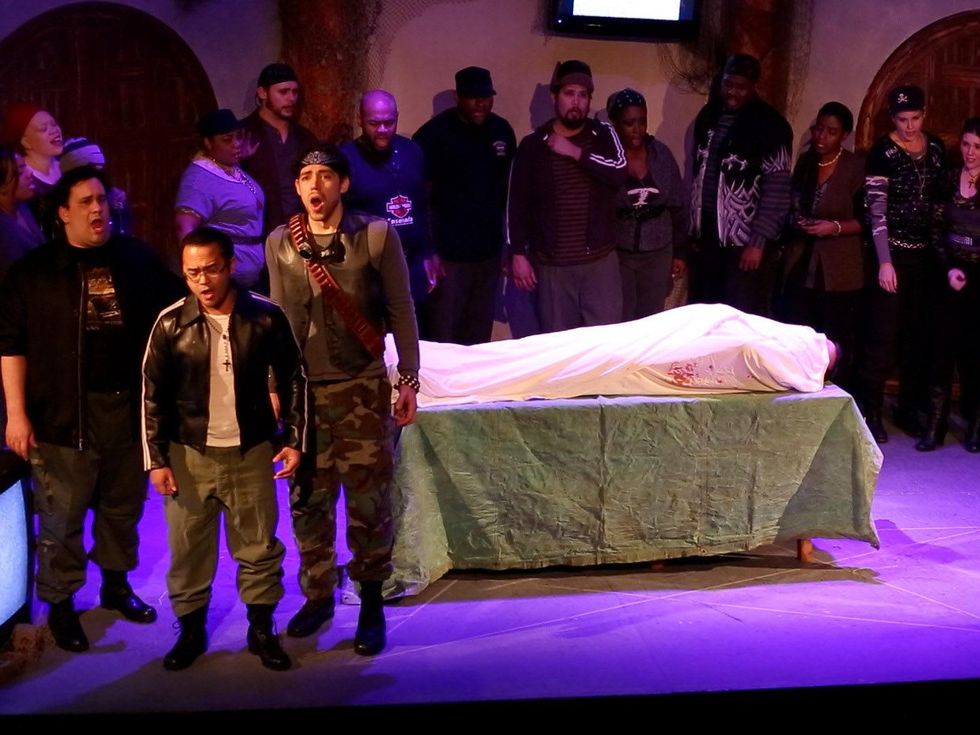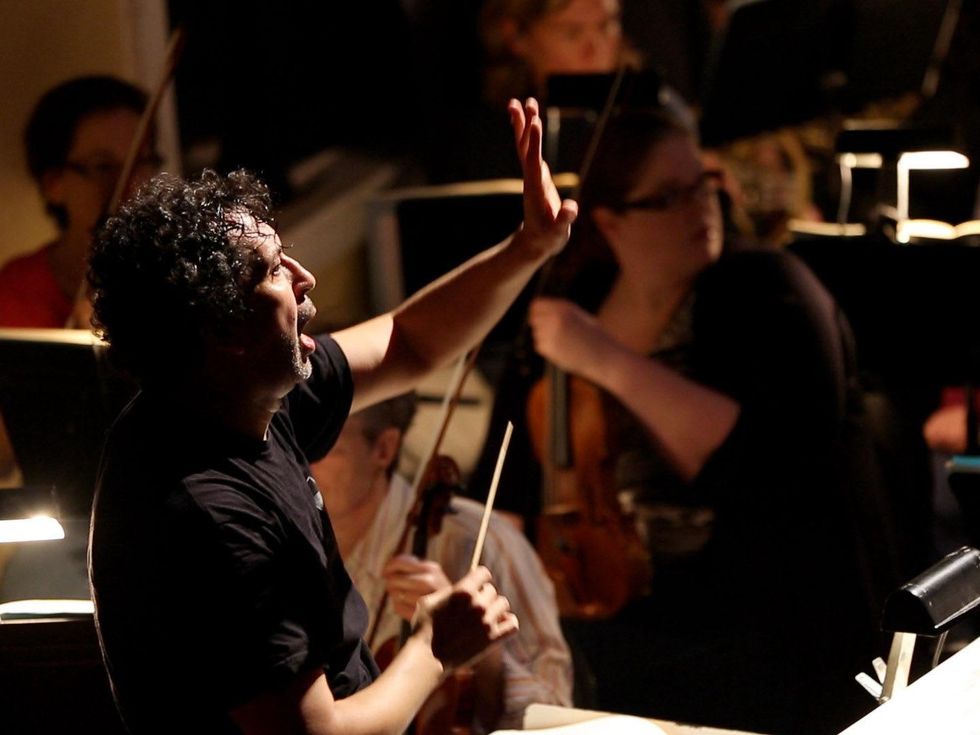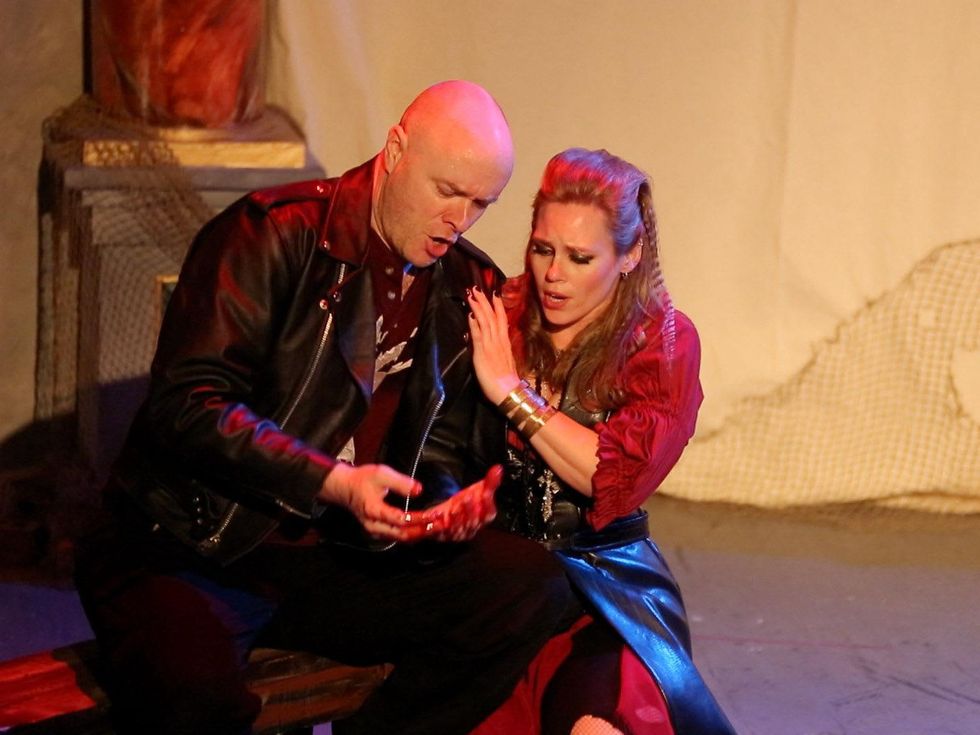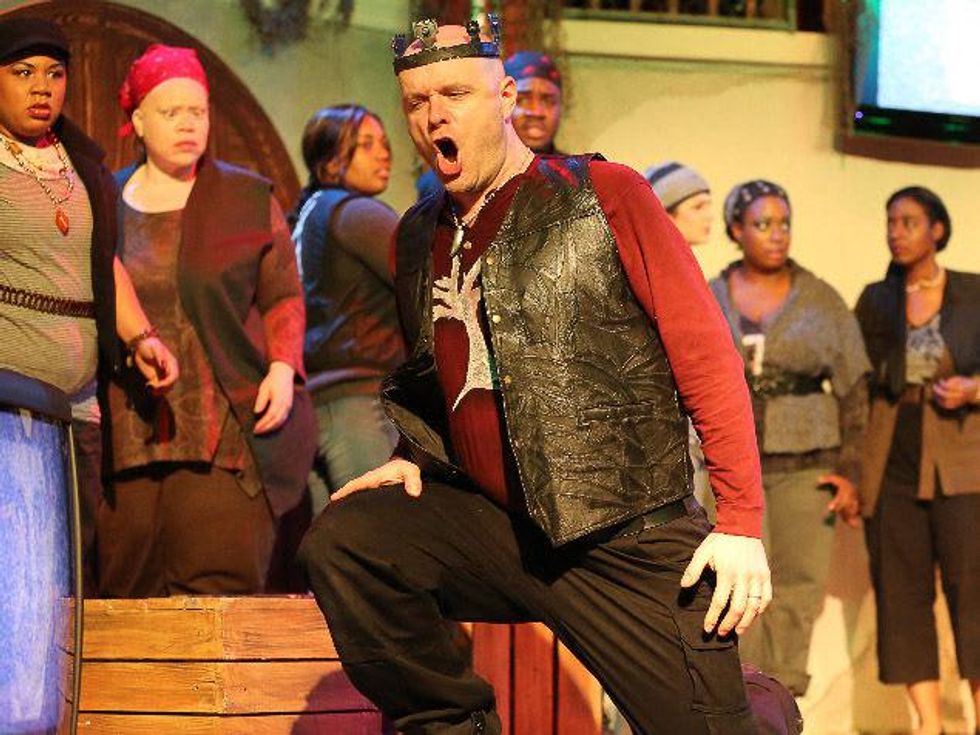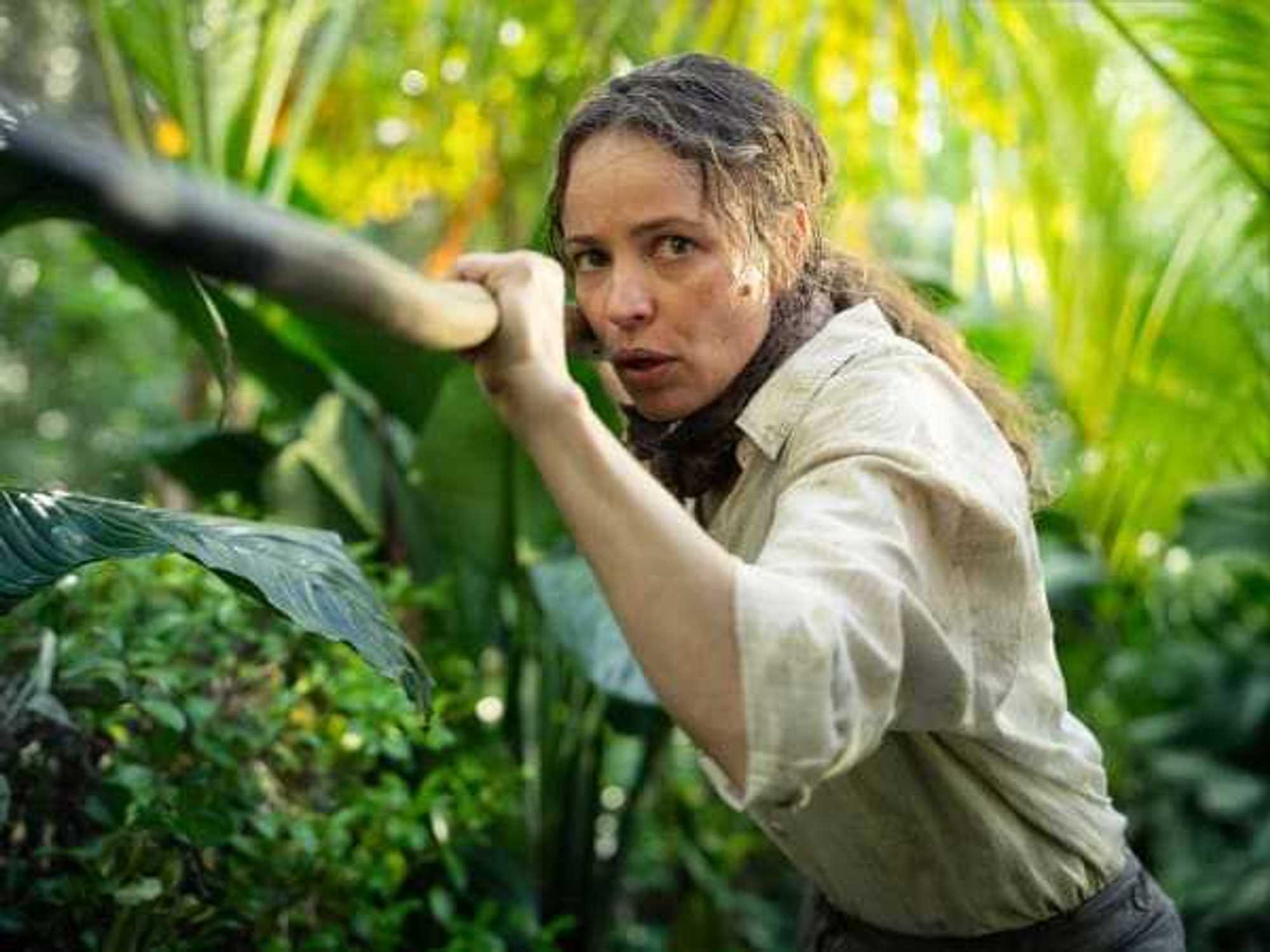CultureMap Video
Mad Max, Poltergeist and Shakespeare merge: Opera in the Heights embraces the supernatural
It's quite possible that Giuseppe Verdi didn't understand one word of William Shakespeare's Macbeth when he saw it for the first time. Scholars say that the Italian Romantic composer wasn't an anglophone, yet the language barrier wasn't an obstacle when Verdi decided to rework the English text into Italian lyrics.
Some call the theater-to-opera process a translation, an adaptation, a transcription, an arrangement or an interpretation, and argue over semantics as to what best describes the formal act of taking a masterpiece from one genre to another. While theater allows for more dialogue and more storytelling than opera, the tuneful medium has the prowess to illustrate motivations that may lay hidden within the written verse, including meaning whose cultural significance may be eroded due to the passing of time.
Macbeth was Verdi's first attempt at a Shakespearean work. Ernest Bloch, Dmitri Shostakovich, Antonio Bibalo and Salvatore Sciarrino, who wrote his Macbeth in 2002, have their own versions, but none are known, performed and revered as much as Verdi's setting.
When Opera in the Heights artistic director Enrique Carreón-Robledo announced the company's 2012-13 season, his desire was to focus exclusively on compositions mused by Shakespeare's works, among them Rossini's Otello, Bellini's I Capuleti e I Montecchi and Verdi's Falstaff, the latter set for April 25 to May 5.
Macbeth opens Thursday night and runs through Feb. 10 at Lambert Hall with alternating casts for the leading roles.
Mad Max, I Love Lucy and Poltergeist
"How can you produce opera inspired by Shakespeare and at the same time go as far as you can away from Shakespeare?" Carreón-Robledo asked himself when planning for Macbeth.
"As a joke I say that Lady Macbeth was probably not popular in high school. It's fun to try on something that's so far from your own personality."
With his creative team, including set designer Rachel Smith, costume designer Dena Scheh, stage director Lynda Keith McKnight, production stage manager Jennifer Kelley and lighting designer Kevin Taylor, the collective vision was to transport the psychological, murderous, Scottish thriller to a milieu that's both familiar and fantastical in today's zeitgeist, while retaining the crux that tickled the respective imaginations of the Bard of Avon and Peppino, the nickname Italians use for Verdi.
The balance of tradition and innovation, of something expected and something fresh, shifts the locus to a post-apocalyptic dystopian wasteland with characterization reminiscent of Mad Max. Think militia outfits, leather, modern weaponry and decaying technology amid sinister trees that eventually reveal the prophetic promises of a throng of witches, humorously depicted in stylized, radioactive-colored mid-century I Love Lucy wife attire. The ghost Banquo appears on the screens of scattered obsolete televisions a la Poltergeist.
It's in this stage that the story of power and corruption unfolds.
Verdi chose to reduce the characters for the opera while honing in on the relationship between Macbeth, Lady Macbeth and, in lieu of the trio of sorceresses in the play, a chorus of witches that has been compared to a Greek chorus, one that offers commentary on the narrative. However, the setup seems more aligned with the fairies of A Midsummer Night's Dream, whose supernatural world exploits and fiddles with the fate and destiny of the mortals.
From Verdi's correspondence with the librettist, Francesco Maria Piave, academics have gleaned that the connection between Lady Macbeth and the witches is what endows the protagonist with her wicked compulsion.
The power hungry couple
On stage, Emily Newton is a provocateur, a temptress who's intoxicated by a desire for power.
In everyday life, Lake Jackson-native, soprano Emily Newton, 33, who starred in Opera in the Heights' production of Donizetti's Anna Bolena last year, exudes none of the conniving qualities of her title role. Newton is an easy-going, happy-go-lucky gal with a charming smile and genteel spirit. But on stage, she's a provocateur, a temptress who's intoxicated by a desire for power.
"As a joke I say that Lady Macbeth was probably not popular in high school," Newton quips. "It's fun to try on something that's so far from your own personality."
Lady Macbeth was attracted to Macbeth because he was a warrior, Newtown says. In the 1600s there were less opportunities for women to achieve status on their own. Lady Macbeth saw in her husband her path to power. That's why she manipulates him, pushes him and scorns him when he exhibits signs of weakness.
"Lady Macbeth is human, but a little less human than Macbeth because of her tie with the witches," Newton continues. "That's important; there's a parallel there. But you do see the humanity in both of them in their frailty of mind with the deeds they have committed. They do suffer from guilt and other things that truly dyed-in-the-wool, purely evil people do not feel — including remorse."
Portraying the humanity in these archetypal characters is a key element for baritone Andrew Cummings, 38, who first appeared with Opera in the Heights' Il Trovatore in March of last year.
"In order to make Macbeth compelling, he really needs to come across as a complete human," Cummings explains. "He doesn't want just unadulterated ambition. There's a lot of elastic motion in the different dimensions of his personality. That makes him incredibly intriguing."
"If Shakespeare had a chance to come back to hear Verdi's music, I think he would approve."
Cummings says that roles like Macbeth and Il Trovatore's Conte di Luna remind him that a Verdian baritone role is a small step away from a tenor. It's challenging physically for the voice. Yet Verdi wasn't necessarily looking for singers with beautiful voices. Rather he sought performers that understood how color nuances communicate inner dialogue.
"My job is to figure out how to do that within the constraints that Verdi gave us, because Verdi's interpretation of the character is a slight variation from Shakespeare's," he elaborates.
The two singers credit Opera in the Heights for encouraging experimentation. The company, whose focus is to nurture young, upcoming talent, recognizes that it's important to cultivate an open, safe environment where artists can take risks, play with delivery and appraise the effectiveness of their performance. During five weeks of rehearsals, their execution has slowly adapted to intensify emotional clues embedded in Verdi's orchestral texture. Such a trial-and-error process is not dissimilar from Verdi's own, who revised the work numerous times throughout his life.
"If Shakespeare had a chance to come back to hear Verdi's music, I think he would approve," Carreón-Robledo says.
___
Opera in the Heights presents Verdi's Macbeth at Lambert Hall from Thursday through Feb. 10. Regular tickets start at $25, $21 for seniors and $10 for students, and can be purchased online. Andrew Cummings and Emily Newton share the title roles with Gustavo Ahualli and Rosa D'Imperio.

